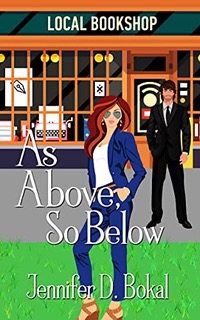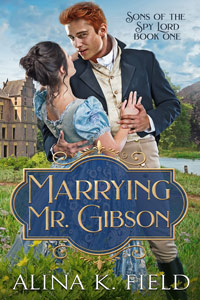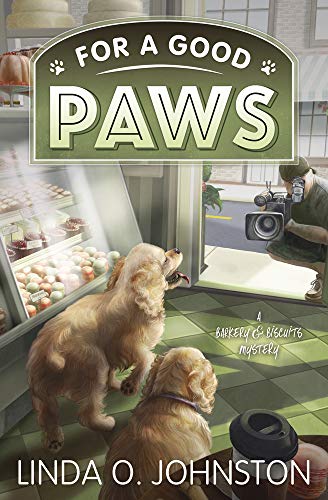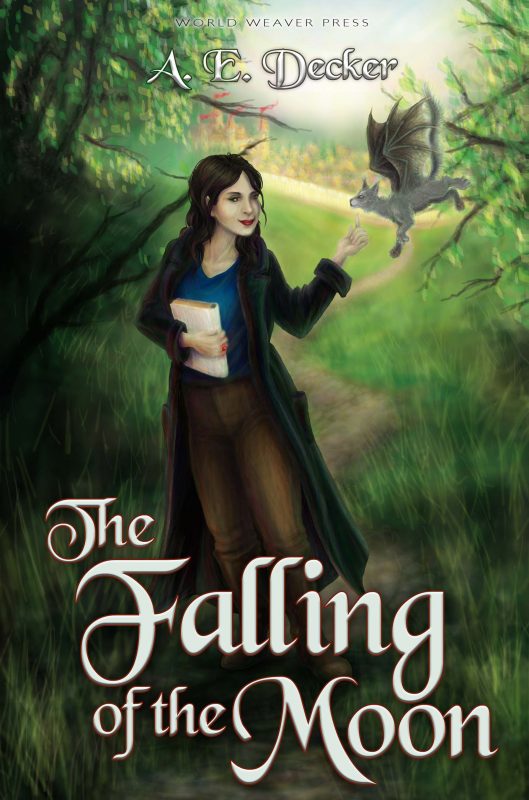Bookseller’s Corner
October 20, 2007 by A Slice of Orange in category Archives tagged as Bookseller's CornerHey there bibliophiles,
This is the strangest fall, because for the first time in 25 years I haven’t been planning my Autumn Book Sale. Weird, unsettling, a little crazy making and( because I usually use the “extra” money to pay my property taxes) sorta scary. I told someone the other day it was like divorce. I was really glad to lose the cranky customers, fighting about money and property maintenance with the landlord and the day to day sameness of it all.
What I miss are my wonderful customers/friends, the freedom of working for myself, the tingly feeling of got when a really rare book came in and just getting to touch it.
I’m still grieving my loss, I know this is what I had to do do to save my sanity, my health and not having live in a box on the street, but I really miss seeing all those people who loved my books as much as I did. I miss opening boxes all during the week and seeing the new book covers on the racks and calling my author friends to tell them that their books were in and I was had been hand selling them. I miss decorating the store windows for Halloween. Silly, yes, I know, but I JUST REALLY MISS IT!
I got over being married, I’ll get over this. I just don’t know when, but I’ll let you know.
Don’t cry for me Orange County, BUB was supposed to be immortal. I never wanted to leave you but hey *hit happens
Michelle Thorne
www.bearlyusedbooks.com
agreatreadoccrwa@aol.com
1998 RWA Bookseller of the Year
Traveling Member At Large
October 19, 2007 by A Slice of Orange in category Archives tagged as Member At LargeMEMBER AT LARGE
More on traveling…
Some people have asked how I could travel to far away exotic locations and not sightsee more. The easy answer is I plan to return with my husband and will behave more like a tourist at that time. I could also cite time constrictions and the involvement in dog activities. The real answer goes deeper and speaks to my life as a writer even when I’m not writing.
Unless my characters fall into their stories from a group tour or from their long planned vacation that’s about to become disarranged, they’re not going to be spending much time in museums or at well known locales. Far more likely they will be driving along the winding back roads scared spit less but not ready to give up yet. Or they’ll be running for their lives along the walking paths cut through fields all over the country. Hope they don’t trip over the many old dogs waddling along those paths and not likely to step aside.
Thatch roofs cost 20,000 pounds to maintain and have to be redone every so many years, which really reduces any desire to have this sort of roof. Each locale has a particular style of thatching, and it’s a very lucrative profession. Maybe you can find that kind of information on the Internet but did you realize old thatched roofs look like packed moldy straw with chicken wire on the top. Not quite as appealing as the pictures I’ve seen of cottages with bright straw thatching.
In New Zealand, now known as the country where Peter Jackson filmed Lord of the Rings, the opportunities off the beaten path are even more fascinating. In Wellington, there’s a bridge which looks like it was thrown up overnight during a drunken contest. Every section slants a slightly different direction. In fact it is magnificently engineered to look like the set of a Disney cartoon. Crossing to the bridge from the waterfront, I found a large concrete sculpture mounted in the ground, quoting Pat Lawlor, Wellington writer: “And now, as I grow in years, I feel at times like an old violin played on by a master hand. You, dear city, are the maestro drawing the bow over the sensibilities of my mind, echoing the music of my days.”
On the bridge itself I read another plaque: “It’s true you can’t live here by chance, you ave to do and be, not simply watch or even describe, this city of action, the world headquarters of the verb.” Someone had sprayed letters across this message, I suppose in their own statement of action. Later I learned this is a part of Wellington’s Writer’s walk – now I need to go back and take the rest of the walk!
My host felt New Zealanders were dour and often depressed, unlike Americans who always seem positive and upbeat, or even Australians who seem sometimes aggressively cheerful. I had to disagree. How can any people who intentionally build a bridge looking like it was thrown together in the dark, and erect buildings in the shape of sheep and sheepdogs be depressed? Much less people who feel their writers are important enough to have concrete plaques installed. Subtle, perhaps so much so they fool themselves. My host reminded me much of New Zealand was settled by Scots, who tend toward a dour attitude. When I thought about this it made perfect sense. Both peoples live in a country with immense natural beauty and so many creative minds but so far away from most of the world.
More fascinating was the attitude of the current residents, depending on their ancestry and for that matter if they were born in New Zealand or emigrated later. Those who came over as bond servants and made their way in the new world by interacting with the Maori, who preceded them by about 1,000 years, told me about the losses for the Maori when New Zealand was “discovered” by Europeans. Those whose ancestors served as officers in the British army showed me paintings of the forts commanded by their great great grandfather, erected to defend the British against the Natives. Perception really is everything.
Monica K Stoner
Writer on the Verge
October 18, 2007 by A Slice of Orange in category Writer on the Verge by Kate Carlisle tagged as Writer on the Vergeby Kate Carlisle
Will it ever ring? Will they ever call? They never call. Sigh.
I think I’ve been waiting for “The Call” since … well, probably since I had a phone that looks like this one.
Fifty years? Okay, maybe not that long. Maybe only twenty years.
But the waiting is over, my friends.
I GOT THE CALL!!!
And oh, it was a sweet moment. And at the risk of sounding really silly–like that’s ever stopped me!–I’ve got to tell you, everything in my world changed in that single moment, when my agents told me that a senior editor at a top publishing company had enough confidence in my writing that she was willing to buy three–THREE!–as-yet unwritten manuscripts from me.
Oh yes, everything changed.
It shouldn’t be that way, should it? A word from one person and suddenly you’re more important or special or different than you were a minute ago? Validation shouldn’t have to come from outside. I should have confidence in my own work. And I do. I know I have writing talent. I work with the most fabulous agents in New York City. I’ve won writing contests and received requests for my manuscripts and studied writing craft and I usually know what I’m doing when I sit down to start a new manuscript.
But something is still missing.
And like magic, when The Call comes, everything changes and all the years of hard work and rejections and hitting your head against the wall and stumbling and picking yourself up and starting over again — all that background story suddenly hits an incredible turning point and spins and twists and explodes in an amazing climax. And whew, everything is different. And it’s fantastic.
Don’t believe me? Just wait. It happened just like that for me and it’ll happen to you, too, if you just remember three little words. Maureen Child used them yesterday and I’m repeating them today because they just may be the key to getting what you want.
Three little words …
Never Give Up!!!
The Write Way (because there is no ‘right’ way)
October 17, 2007 by A Slice of Orange in category The Write Way by Maureen Child tagged as Maureen ChildSo, last month I went to plot group. My plot group’s been meeting twice a year for more than ten years. Susan Mallery, Christine Rimmer, Teresa Southwick and I have worked together well, obviously, for a long time! This time was different though. We had a new member, Kate Carlisle. And hey, now Kate’s published too! Coincidence? I wonder…
But the point of this blog is to say that even after writing and selling and publishing nearly a hundred books, I’ve still got plenty to learn. Plot group lets you brainstorm with other writers. Writing is a solitary profession. And usually, that’s one of the biggest reasons why I like it so much. It’s not necessary to play well with others. But plot group is something different.
For three days, we plot like crazy. We laugh like loons, we come up with off the wall ideas, plot points, turning points, character traits, bad moments, escalating ways to torture our people and titles that will never see the light of day. We turn ourselves loose, cutting off the inner critic who’s always warning us not to push the envelope too far. For those few days, anything is possible. There is no such thing as a bad idea and you can say whatever’s on your mind.
I’m not saying all the ideas we played with will survive. As a matter of fact, one of my ideas didn’t exactly thrill my editor, so I’ll be coming up with something else for her. But that idea she doesn’t want will be stored away to maybe find life again somewhere else. I really do like that hero!
As writers we’re always looking for the next great book. The idea that will wow editors, amaze marketing and thrill readers to the point that we land on the NYT list within two days of publication! The sad truth is, that no matter who you are or how many books you’ve published, there’s always rejection to be considered. No matter how brilliant we think we are, not every idea is golden. Not every book should be written.
So we keep going. We keep typing. Because persistence is the key in this business. Never surrender. Never give up. Never go away. Keep writing, because at the bottom of it, that’s all a writer can really do.
Maureen Child is hard at work on her next Desire for Silhouette and in between pages, is still taking breaks to do the happy dance for her good friend Kate Carlisle! Congrats again on your 3 book sale to NAL, Kate!
Writer’s Word
October 15, 2007 by A Slice of Orange in category ArchivesA Proper Break
by Jenny Hansen
Several years ago, I traveled to the UK to train several groups of students there on how to use the (then) newly released Macintosh OS-X Jaguar and the new version of Microsoft Word that came out at the same time. I learned a lot in that trip to London, mostly about the many things that I thought I knew how to do and really didn’t.
For example, I heard a lot about how to brew “a proper pot of tea.†Nearly every group I taught my first few days there had to show the American how to brew tea. They would take me over to the break room in between class sessions. (Mind you, we took breaks about every hour) and take me through British Tea 101: use cold water, bring to a full boil, warm the teapot with a good swish of hot water before you begin to steep the tea for 3-5 minutes. The directions were quite precise and without variation…I’ve included a link at the bottom of this blog for any who would like the full list of tea Do’s and Don’ts.
Proper tea was just another thing, along with phrases like “being hard up†(poor) and “pissing down†(raining) that I thought I knew the meaning of before I went. I heard all kinds of great phrases but I particularly liked the word “squiffy†– I think it has a cute sound – and, since I did participate in a local pub crawl, I heard it quite a bit (http://wordnet.princeton.edu/perl/webwn?s=squiffy).
George Bernard Shaw wasn’t kidding when he described England and America as “two countries separated by a common language.†I discovered, as I taught these British students, how important it was to be precise in my directions to avoid confusion. I learned to drop slang from my classroom presentation – we would end up talking about American slang instead of Microsoft Word – and I absolutely delighted in listening to my students speak.
One particular girl came to several of my classes and I loved to hear her speak in her Cockney accent. She ended up visiting my classroom almost every day and every time she came, we made each other laugh. We had long discussions about the differences between our cultures. I’d thrill her with my impersonation of various American accents and she’d ask me questions like, “What do you mean you’ve never seen a proper tea spoon?â€
It was from her that I learned that Americans work more hours and take less vacation than Europeans do. When I shared with her that we get two weeks of vacation a year as part of our standard employment package, she was struck dumb for a moment. When she recovered she said, “Two bloody weeks a year? The lot of you must be mad! I’m dotty on less than four.â€
In return for all the fantastic local slang she shared with me, I stayed through lunch one day to brew her a proper pot of tea and teach her, in her own words, how to make a proper break.
A proper Break, you ask? How does one MAKE a proper Break?
In Microsoft Word, there is a tool that every creator of long documents – particularly long documents with sections (like chapters) should know – and that is how to use Breaks.
Think of a break as an interruption:
I want to interrupt this page… one would use a page break.
I want to interrupt this column…a break would help again!
What about if I need to go to the next Chapter and have the Header or the Footer change to say Chapter 2 instead of Chapter 1 now…once again, a Break!
There are several different kinds of Breaks and they are all located in the Insert menu under Break…:
Page Break
The keyboard shortcut for this is to hit the CRTL and the Enter button at the same time. This will immediately move you to the next page without having to hit the Enter key eighteen times to get there.
Column Break
The keyboard shortcut for this is to hit the CTRL, the SHIFT and the Enter key simultaneously. If you are creating two or more columns of text (think about our newsletter or even your own notes and lists of words), the Column Break can keep you from having one little orphaned line at the bottom of a column. A Column Break says, “Move those lonely little words out of this column and into the next one.â€
Text wrapping Break
This is a new feature that was added to the later versions of Word and it is quite useful if you use a lot of tables or graphics in your documents. This ends the current line and forces the text to continue below a picture, table, or other item.
Section Break
There are several different kinds of section breaks, though most writers use only one. I don’t want to short-change anyone who wants to use them all so I’ll define each type in greater detail.
Section break types:
Next page
Inserts a section break and breaks the page so that the next section starts at the top of the next page.
I use section breaks in conjunction with changes to chapter Headers and Footers in my manuscript. (If you don’t know what I mean when I say “Headers and Footers†you need to either refer to an earlier column or go to Word and hit the F1 key to get help on this feature.)
Next Page breaks allow you to break this chapter and go to the next. When you are finished with your manuscript, you will then go back through your manuscript and change each section to have the proper heading (i.e. Chapter 1, Chapter 2 and synopsis). By using Next Page section breaks, you allow your page numbering to stay consistent throughout your manuscript and this is HUGE. I know writers who put their page numbers in by hand and it breaks my heart to see them waste so much time. USE BREAKS!!!
Continuous
I think of this as interrupting formatting for part of a page, rather than an entire page. For example if I want to have a page of text with three columns in the very middle of the page, the only way to do it is to put a Continuous section break before and after the text I want to turn into columns. Otherwise Word will turn the entire document into columns.
Note:The only individuals I’ve ever seen use the next two types of breaks are people who make course ware books for subjects like math where the text goes on the left page and the diagrams go on the right, or vice-versa.
Even page
Inserts a section break and starts the next section on the next even-numbered page. If the section break falls on an even-numbered page, Word leaves the next odd-numbered page blank.
Odd page
Inserts a section break and starts the next section on the next odd-numbered page. If the section break falls on an odd-numbered page, Word leaves the next even-numbered page blank.
I’m sure you’ve already guessed how this odd topic came up in an everyday discussion about Word. However, if you are still wondering, my student was one of that special breed of people…she’s a writer.
Promised links:
How to brew a proper pot of tea if you are British or Irish: http://www.superluminal.com/cookbook/beverages_tea_english.html
A list of all the Microsoft Word keyboard shortcuts mentioned in this column, plus a whole lot more:
http://www.fgcu.edu/support/office2000/word/shortcuts.html
p.s. Keyboard shortcuts are the same between Macs and PC’s – you simply substitute the Command button for the CTRL button. The only notable difference is CTRL+Q, which “quits all paragraph formatting†in Word for the PC, and Command+Q, which ejects a diskette for the Mac.
Affiliate Links
A Slice of Orange is an affiliate with some of the booksellers listed on this website, including Barnes & Nobel, Books A Million, iBooks, Kobo, and Smashwords. This means A Slice of Orange may earn a small advertising fee from sales made through the links used on this website. There are reminders of these affiliate links on the pages for individual books.
Search A Slice of Orange
Find a Column
Archives
Featured Books
MARRYING MR. GIBSON
She won't be forced into marriage to a nobleman's by-blow. He won't be trapped into marriage by a father he's never known.
More info →
FOR A GOOD PAWS
Barkery owner Carrie Kennersly is leashed with a tale of two culprits.
More info →THE FALLING OF THE MOON
In the gloomy mountains of Shadowvale, Ascot Abberdorf is expected to marry a somber Count and settle down to a quiet life terrorizing the villagers.
More info →
Newsletter
Contributing Authors
Search A Slice of Orange
Find a Column
Archives
Authors in the Bookstore
- A. E. Decker
- A. J. Scudiere
- A.J. Sidransky
- Abby Collette
- Alanna Lucus
- Albert Marrin
- Alice Duncan
- Alina K. Field
- Alison Green Myers
- Andi Lawrencovna
- Andrew C Raiford
- Angela Pryce
- Aviva Vaughn
- Barbara Ankrum
- Bethlehem Writers Group, LLC
- Carol L. Wright
- Celeste Barclay
- Christina Alexandra
- Christopher D. Ochs
- Claire Davon
- Claire Naden
- Courtnee Turner Hoyle
- Courtney Annicchiarico
- D. Lieber
- Daniel V. Meier Jr.
- Debra Dixon
- Debra H. Goldstein
- Debra Holland
- Dee Ann Palmer
- Denise M. Colby
- Diane Benefiel
- Diane Sismour
- Dianna Sinovic
- DT Krippene
- E.B. Dawson
- Emilie Dallaire
- Emily Brightwell
- Emily PW Murphy
- Fae Rowen
- Faith L. Justice
- Frances Amati
- Geralyn Corcillo
- Glynnis Campbell
- Greg Jolley
- H. O. Charles
- Jaclyn Roché
- Jacqueline Diamond
- Janet Lynn and Will Zeilinger
- Jeff Baird
- Jenna Barwin
- Jenne Kern
- Jennifer D. Bokal
- Jennifer Lyon
- Jerome W. McFadden
- Jill Piscitello
- Jina Bacarr
- Jo A. Hiestand
- Jodi Bogert
- Jolina Petersheim
- Jonathan Maberry
- Joy Allyson
- Judy Duarte
- Justin Murphy
- Justine Davis
- Kat Martin
- Kidd Wadsworth
- Kitty Bucholtz
- Kristy Tate
- Larry Deibert
- Larry Hamilton
- Laura Drake
- Laurie Stevens
- Leslie Knowles
- Li-Ying Lundquist
- Linda Carroll-Bradd
- Linda Lappin
- Linda McLaughlin
- Linda O. Johnston
- Lisa Preston
- Lolo Paige
- Loran Holt
- Lyssa Kay Adams
- Madeline Ash
- Margarita Engle
- Marguerite Quantaine
- Marianne H. Donley
- Mary Castillo
- Maureen Klovers
- Megan Haskell
- Melanie Waterbury
- Melisa Rivero
- Melissa Chambers
- Melodie Winawer
- Meriam Wilhelm
- Mikel J. Wilson
- Mindy Neff
- Monica McCabe
- Nancy Brashear
- Neetu Malik
- Nikki Prince
- Once Upon Anthologies
- Paula Gail Benson
- Penny Reid
- Peter Barbour
- Priscilla Oliveras
- R. H. Kohno
- Rachel Hailey
- Ralph Hieb
- Ramcy Diek
- Ransom Stephens
- Rebecca Forster
- Renae Wrich
- Roxy Matthews
- Ryder Hunte Clancy
- Sally Paradysz
- Sheila Colon Bagley
- Simone de Muñoz
- Sophie Barnes
- Susan Squires
- T. D. Fox
- Tara C. Allred
- Tara Lain
- Tari Lynn Jewett
- Terri Osburn
- Tracy Reed
- Vera Jane Cook
- Vicki Crum
- Writing Something Romantic
Affiliate Links
A Slice of Orange is an affiliate with some of the booksellers listed on this website, including Barnes & Nobel, Books A Million, iBooks, Kobo, and Smashwords. This means A Slice of Orange may earn a small advertising fee from sales made through the links used on this website. There are reminders of these affiliate links on the pages for individual books.






































